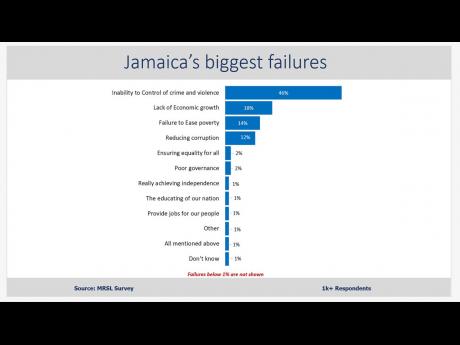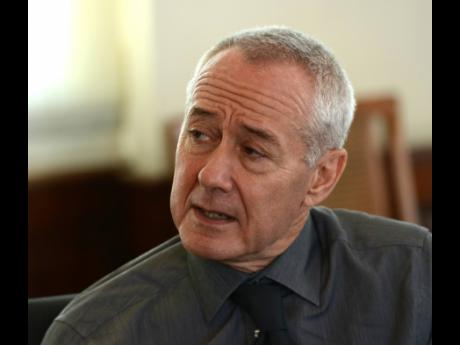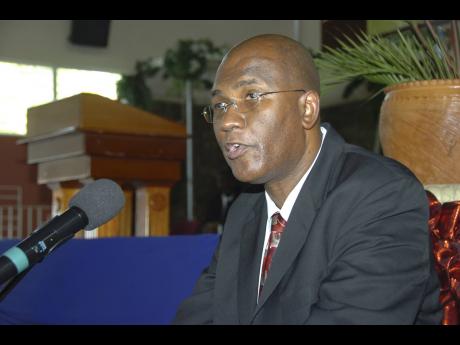Crime biggest failure of independent Jamaica – poll
The inability to control crime and violence is deemed Jamaica’s biggest failure since the country gained Independence 60 years ago. In an RJRGLEANER-commissioned poll conducted by Don Anderson, 46 per cent of Jamaicans flagged that...
The inability to control crime and violence is deemed Jamaica’s biggest failure since the country gained Independence 60 years ago.
In an RJRGLEANER-commissioned poll conducted by Don Anderson, 46 per cent of Jamaicans flagged that underachievement as the gravest, followed by 18 per cent who said the biggest failure was the country’s lack of economic growth.
Police statistics show that more than 45,000 people have been murdered in Jamaica since the country gained political independence.
Another 14 per cent indicated that it was the failure to ease poverty, while 12 per cent said reducing corruption.
Poor governance, ensuring equality for all, educating the nation and providing job opportunities were among the other failures outlined by the remaining 10 per cent of respondents.
Of note, failures below one per cent were not shown in the poll results.
The assessment of social deprivation may offer a stark judgement on grass-roots realities, with double-digit inflation eroding consumer power amid contrasting data of record-low unemployment of 6.1 per cent and an 11 per cent poverty rate - the second lowest in a decade.
An Anderson poll published three days ago found that more than 60 per cent of Jamaicans believe sports and music are the country’s greatest achievements since 1962. Thirty-nine per cent of respondents said sports and 27 per cent, music.
Cultural growth was ranked the third, followed by physical development and economic growth.
Anderson, CEO of Market Research Services Limited, said Jamaica’s inability to collar crime was a dominant view across the demographics of age, gender, and socio-economic group.
More than 50 per cent of Jamaicans aged 55 years and over said that crime was the country’s biggest failure.
Anthony Clayton, professor of Caribbean sustainable development at The University of the West Indies (UWI), Mona, agrees with the findings and would rank the failures in the same order.
“Our failure to date to deal with our problems with crime and corruption is the single most significant factor that has undermined our development,” he said, citing studies showing a cost to GDP of seven per cent.
He said those losses amount to the equivalent of Jamaica’s national debt and is also “wealth that Jamaica has forgone”.
Clayton said that the economy would be three to 10 times bigger if Jamaica did not have the problems of crime and corruption.
Solving that dual problem would have a domino effect in slashing poverty.
Nearly two-thirds, or 29,642, of the murders that have occurred since Independence were recorded from 2000 onwards.
Further, upwards of 80 per cent of the 45,590 murders tallied since August 6, 1962, involved the use of a gun.
Lecturer in the Department of Economics at The UWI, Dr Peter-John Gordon, said it is not surprising that most people indicated that the inability to control crime and violence is Jamaica’s major failure given its personal nature.
He said that it not only affects victims but creates fear among others and has great implications for economic activity.
“The cost of doing business goes up if you have to employ security or install CCTV cameras. The economy is growing slower, and my only surprise is that the number associated with that is not higher.
“A slow-growing economy means that people would not be seeing Jamaica as a viable place to live or have their children live,” Gordon said.
Jamaica’s economy grew by an average of 1.4 per cent annually over the 60 years since the country achieved Independence.
Of the 18 per cent of Jamaicans who mentioned a lack of economic growth as the biggest failure, 22 per cent were aged 18-24.
Anderson said that it perhaps signals some level of despair for their own fortunes and prospects for economic inclusiveness within the society.
Further, Gordon said that besides economic policies and crime, low literacy and the smallness of Jamaica’s educated workforce at Independence also factored in the country’s slow growth.
The economist said further that the social implications of poverty across Jamaica are stark, with many living on gully banks or on the fringes of dumps.
Fourteen per cent of the 1,113 adults sampled indicated that Jamaica’s inability to address poverty was the country’s biggest failure.
“Very similar to the previous assessment, younger persons aged 18 years and over represented the most significant demographic in this analysis. There again, 22 per cent of that segment highlighted this as the biggest shortcoming since Independence,” the pollster explained.
Fieldwork for Anderson’s poll was conducted between July 16 and 26 this year. The margin of error was plus or minus three per cent.



